"Night, when words fade and things come alive. When the destructive analysis of day is done, and all that is truly important becomes whole and sound again." -Antoine de Saint-Exupery
When you look out into the Universe, what is it that you typically think of? Do you think of reliable, fixed stars and constellations? The vast expanse of the Milky Way, with its memorable dust lanes and amorphous shapes?
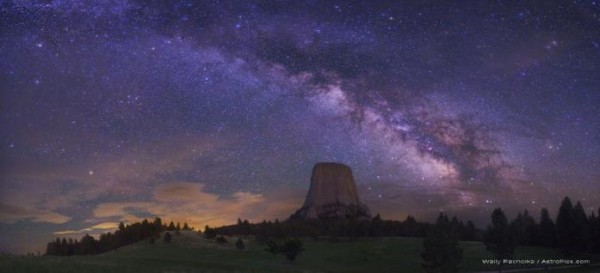 Image credit: Wally Pacholka of http://www.astropics.com/.
Image credit: Wally Pacholka of http://www.astropics.com/.
The unchanging nature of the points of light in the sky?
Maybe you think deeper and farther than that. Maybe you think about the distant galaxies and clusters, and the deepest deep-sky objects we know of. How the light took millions or even billions of years to reach us, and yet how every time we look at them, we see them exactly the same way.
I couldn't fault you for thinking like this; from mankind's point of view, the Universe -- for all intents and purposes -- doesn't change at all as we view it from one night to the next.
But does that really mean the Universe isn't changing?
Let me flip this around on you: how much does anything here on Earth -- you, your surroundings, even an entire, vibrant city -- change in half-a-millisecond?
Not a whole lot, that's for certain. You only change with the passage of time, and half-a-millisecond is just 0.00000000002% of a typical human lifetime. It's too short of a timespan to notice any but the most catastrophic changes, and even then you have to look very closely.
So why should you expect the Universe to change substantially over just 0.00000000002% of its lifetime? That's how much of the Universe's lifetime passes between one night on Earth and the next. And yet, if you looked at the right objects, you would be able to see meaningful changes from one night to the next.
The objects within our Solar System, for example, are close enough that we can see them moving from night-to-night. Objects closer to us -- like Mars, in the foreground -- appear to move more substantially than more distant objects like Uranus, visible in the background.
The great cause of all this motion, of course, is our largest nearby clump of matter: the Sun. Objects like planets move at tens of kilometers-per-second relative to the Sun thanks to its gravity, while Sun-grazing comets can be accelerated up to speeds in the hundreds of kilometers-per-second. If you're in the southern hemisphere, you may be able to get a good view of one now: Comet Lemmon.
Green because of the carbon and nitrogen interacting with sunlight, this photo does an excellent job of tracking the stars from the Earth along with the Earth's rotation. What you probably can't tell is that the comet -- with a photo exposure time of over an hour -- is blurred.
If instead of tracking the stars perfectly, we tracked the comet perfectly, know what we'd see?
That comet is moving relative to the stars behind it, and our ultra-close proximity to the comet makes it abundantly clear.
But what you may not realize is that these "fixed" stars are also moving at tens-to-hundreds of kilometers-per-second relative to us, and relative to one another! It's only the vast distances between us -- measured in many light-years -- that make it impossible to detect these changes from night-to-night.
But we can't really detect changes in ourselves from millisecond-to-millisecond; you simply need to look on longer timescales!
The stars in our night sky shift positions by many kilometers each second. From night-to-night we might not be able to tell the difference, but just as you or I look different when we go weeks without cutting our hair, we can see just how the Universe changes over long enough timescales.
There are gas clouds and stellar remnants tearing through the interstellar medium at these same speeds, including some that move at thousands of kilometers-per-second, even approaching 1% the speed of light!
There are new stars being born -- where nuclear fusion ignites for the first time -- and stars that run out of fuel, dying in either a planetary nebula or a supernova explosion, depending on the properties of the star.
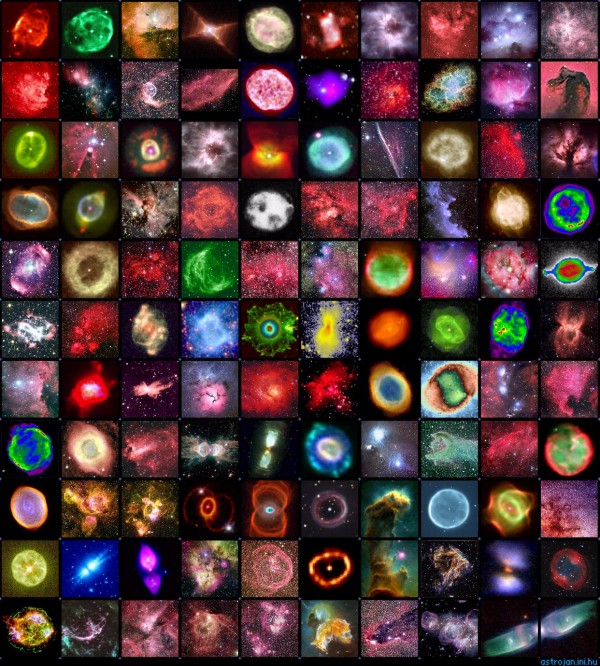 Image credit: http://astrojan.ini.hu/, retrieved from Margaret Hanson, U. of Cincinnati.
Image credit: http://astrojan.ini.hu/, retrieved from Margaret Hanson, U. of Cincinnati.
And on the largest scales, galaxies merge together, triggering star formation and some fabulous cosmic mashups, in processes taking upwards of hundreds-of-millions of years.
And in some of the fastest and most spectacular changes, catastrophic stellar events -- like supernovae -- can literally appear from nothing over the timescale of just a few nights!
When you look up at the Universe, it may appear static and unchanging, but that's only because these objects are so far away and our human experiences are so short in comparison with the age of the Universe.
But stick around for a while, and even the most mundane of objects will change for you. Fuel burns, elements fuse, gravity pulls, and physics happens. Just give it time, and you'll see it for yourself.
We may only be around for a snapshot of it, but make no mistake, it's never the same from moment-to-moment. From the way I look at it, there isn't any doubt about it: the Universe is alive.

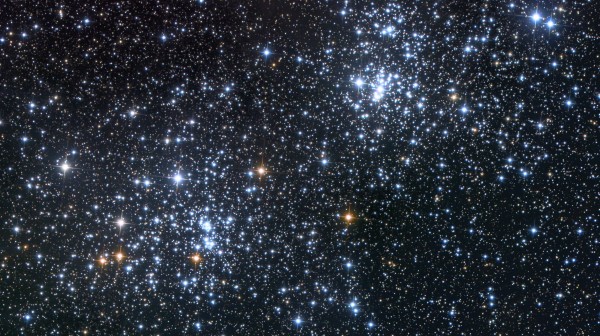
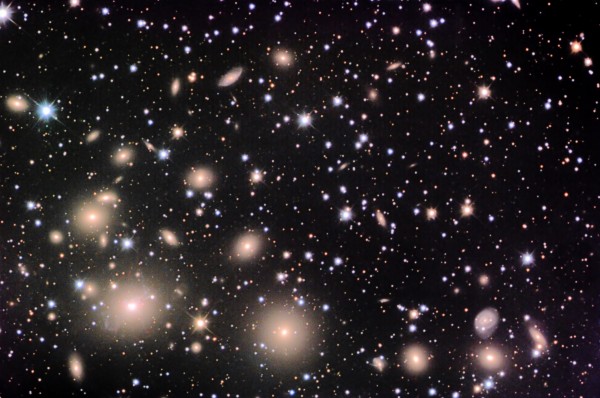


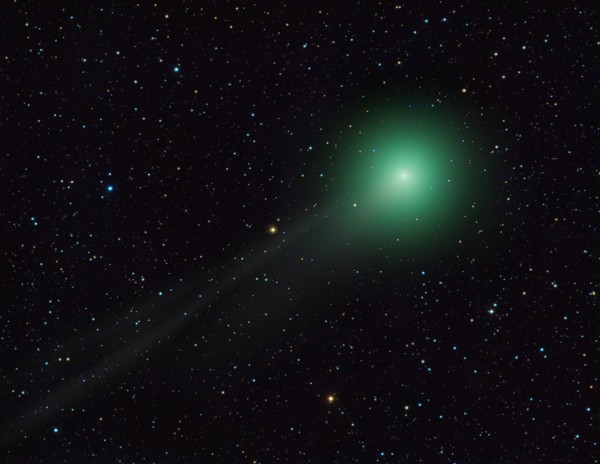
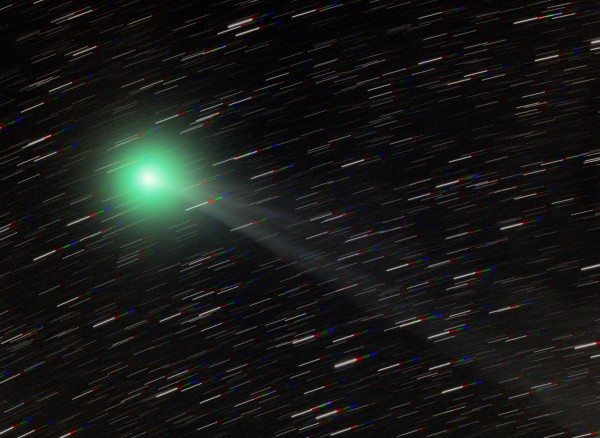



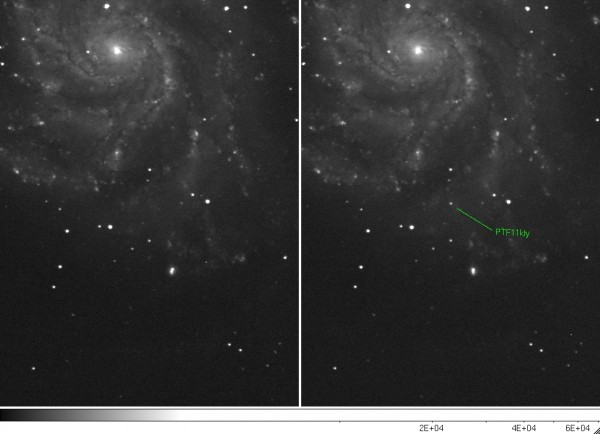
What do you mean by "alive", "universe" and "is".
Are elementary particles alive too?
What do you mean by "clarity", "please" and forgetting that a full stop doesn't indicate a question?
Great article. I'm sorry that you're about to receive a bunch of comments taking you out of context with the whole "Universe is alive" thing. It seems obvious that you're not stressing this in a literal sense and that you're simply implying that the Universe is more dynamic that it appears to us from our limited vantage point in space and time.
Thinking about the Universe in a dynamic sense is what makes science so exciting for me, personally. Abstracting the intricacy of the world around us into a static and unchanging picture has never done science any favors, in my opinion.
I am sitting here pleased to be in a living universe. I think that means it is not surprising to find intention and purpose somewhere in it and indeed we do find that. The time scales of things are essential.
Also the size matters.
As far as life goes, it is single cell life that is by far the most successful on the planet by several measures and it is only our pride that keeps us from realizing we people as organisms are basically colonies specialized to many purposes, most of them not ours at all.
The life cycle of stars is so completely foreign that we can't see it at all.
Humankind is startlingly good at denial and insisting on the illusion of central position. We cannot really find our place in the grand scheme of things without breaking free of both.
De acuerdo con Zacarias entiendo no es literal "esta vivo" sino que esta en movimiento o es dinámico ademas no olvides que cuando miramos el universo, dadas las magnitudes de las distancias estamos mirando el pasado no el presente y en algunos casos miramos incluso "fantasmas" es decir eventos que ocurrieron hace miles de millones de años y hasta ahora nos llegan las imágenes de tales eventos, por poner un ejemplo la explosión de una estrella un evento que, dependiendo de la distancia (en años luz) que le separe de nosotros así también es la distancia en el tiempo en el pasado en el que tuvo lugar tal suceso o evento.
Ethan, another great blog.
A property of being alive is that you can attempt to multiply. It kind of funny, but probably no coincidence, how the universe tackles the task - and your image supports the claim: http://scienceblogs.com/startswithabang/files/2013/02/eternal_inflation…
Keep writing!
Cosmic mitosis:
"In physics, the intriguing concept of baby universes as the offspring of a parent universe – acquiring a life of their own while remaining connected to the latter – has been most concretely realized in 2d Euclidean quantum gravity models... Our key observation will be that the necks of baby universes are by construction rather special curves on the two-surface, whose scaling behaviour (as function of the surface area A) is different from that of generic curves... The shortest non-contractible loop based at any given vertex v can be found by performing a so-called breadth-first search along the edges starting at v... No matter what choice one makes, additional weights associated with the matter on the boundary will arise, which are simply not taken into account in the treatment of, which crucially features “baby universe surgery” along such boundaries." arXiv:1110.3998
Cosmic consciousness:
"Sensible Quantum Mechanics or Mindless Sensationalism is a framework for relating consciousness to a quantum universe... Sensible Quantum Mechanics assumes the connection between consciousness and the quantum in the form that for each conscious perception p, there is an associated quantum “awareness operator” A(p), and that the measure for the conscious perception p is the expectation value, in the quantum state of the universe, of the corresponding experience operator, w(p) = σ[E(p)]." arXiv:1102.5339
Cosmic depression:
"The Cosmically Depressed: Life, Sociology and Identity of Voids... Void Life: Formation and Evolution... In summary, it allows us to find the emptiest regions and most lonely galaxies in the Local Universe." arXiv:0912.3473
Does the universe needs a shrink?
Part of it clearly does, yes.
(You know, I'd even bet that you're not a real angel, nor called Gabriel. Just a hunch.)
The Big Dipper is going away in 100.000 years? I will worry about it when it happens.
"Cosmic Voids and Galaxy Bias in the Halo... we make the conventional simplifying assumption that.. HOD is independent... void(s).. can reduce systematic uncertainties in the cosmological constraints derived from HOD... Voids are.. omnipresent... Even in the deepest voids in the dark matter, halos still form... Void(s).. are, however, sensitive to differences in the minimum halo... Because they are sensitive to environmental variations of the HOD... galaxies.. effectively "shrink" the voids." arXiv:astro-ph/0603146
Well I was just sitting there on the head of a pin with the other angels observing that, yes of course, there are more angels on the head of a pin than even electrons.
Then Archangel Raphael sat down beside me and suddenly remarked, "Make no mistake, it’s never the same from moment-to-moment. From the way I look at it, there isn’t any doubt about it: the electrons are alive." He spoke with such poetic certainty.
Moved, I kindly inquired, "Really?"
Raphael rasped, "Like me, the reports that electrons are dead are greatly exaggerated."
I fumed, "Now how didn't I know."
Nice post Ethan. I needed that to remind me of a few things.
When we look at the universe, we are looking at the past, millions and billions of years ago. In our very short span of life, how could we know what is happening to the the universe "now", our definition of this very moment, let alone in the far "future"?
(btt1943, tanboontee)
Really liked the Mars/Uranus pic!
@tanboontee
"In our very short span of life, how could we know what is happening to the the universe “now”, our definition of this very moment, let alone in the far “future”?"
Well for starters, the idea that there is a well-defined "now" that applies to the whole universe got thrown out with Relativity. Also, it is literally impossible to know what is happening "now" somewhere else because information about their "now" can't reach us faster than light ergo the "now" we witness here is always the "past" for the distant object.
However the reason why we can have a pretty well educated understanding is because of exactly what you said -- we're looking at the past, millions AND billions of years ago. And tens of thousands of years ago, and a few years ago. We can see many epochs of the history of the universe by looking at objects at different distances.
We have to assume that the past of our neighborhood of the universe is well-represented by the "now" of distant objects. But doing so presents a coherent picture of the universe, so it seems to work. And by studying that picture, and learning the rules that govern its evolution, we can make reasonable predictions about the future.
In other news, some people need to look up "alive" in the dictionary and understand there are more meanings that the "biological life" sense.
Meaning is determined by context.
Google and find the meaning-in-context of the phrase: the universe is alive (no quotes used)
The resultant page 1 meanings (usage examples) are:
"The cosmos may be a superorganism, a collection of separate bodies acting like a single being."
"Scientific Evidence of a Living Consciousness Universe"
"Is the universe alive? Does it evolve, think, reproduce?"
"Computer Model Shows the Universe is Alive!"
"The Universe is fundamentally biological."
Yes, Ethan phrase must deliberately provokes one of these meanings which I hadn't considered. Hmm?
Maybe the relevant similar example to Ethan's usage can be found beyond page 173 of google's search results.
Google is wonderful for geeks seeking an example of similar word usage.
But which example is most similar to Ethan's usage? Hmm? I'm not sure.
So your claim is that to understand the context of Ethan's usage, you shouldn't consider the context surrounding the phrase in question, as in what he wrote, but rather a bunch of out-of-context search results from googling "universe is alive"? You'll have to try harder to get me to buy that.
You know why? Because the top google results for "buy" have nothing to do with the meaning you automatically gleaned from the actual context in which I used that word.
Oh well. At least you're keeping the discussion alive.
This article has changed my view on the universe. Though I've never been a habitual star-gazer, the few times I have spent a night looking at the stars have all seemed the same to me. I can usually find my favorite constellations with ease among the scattered stars, and even though I've known that things change in space, I never realized that the stars do as well. When you compare it to how a persons hair length changes day after day, it really sinks in that small changes in the galaxy can easily go unnoticed. And even though the universe does not evolve, think, or reproduce (as said in previous comments), the world 'alive' is refering more to the vast unknown possibilities it encompasses. There's so much to learn about it and everything in it, and the fact that it is constantly changing opens up endless possibilities.
Oh, you've got to be kidding me.
Ethan Siegel now is saying that the Universe is alive? And about a year ago, is specifically quoted as saying this about a theory proving that the universe is alive:
"Or in the words of astrophysicist Ethan Siegel at Lewis and Clark College (and author of the blog Starts With a Bang), 'Crackpottery doesn't even begin to describe just how dreadful this is, and how much shame should be heaped upon CWRU for this."'"
see here:
http://www.livescience.com/18207-crackpot-theory-reveals-dark-side-peer…
So, a theory that proves that the universe is alive is "crackpottery" according to Ethan, but its ok for him to use bunch of pictures to make the same claim. Geez, contradict yourself much, Ethan?
How about this: The terms information and life are mushy and a bit ambiguous, but a search of the terms information and life will produce abundant evidence that information and life, whatever they may be, can not be separated. The universe is definitely quantum in nature --- again whatever that may mean. The current knowledge of the relevant fields shows that according to quantum mechanics information can not be created nor destroyed.
Thus, how, exactly can one avoid the conclusion that the universe is alive, by whatever definitions one wishes to use?
i like this
The universe is literally alive! It was born, it'll live for a time and die, just like everything else. Imagine a virus in the host body. Then, that virus trying to see its total surroundings. That's humans and the universe. If it sounds simplistic, it's because it's that simple..
Viruses don't have eyes and therefore can't see. Not having a nervous system or storage for those impulses, they also can't consider. Not to mention there's no reason for the universe to know itself either: it has no discernable want or need. We anthropomorphise things, because pretending agency even when there is none is a benign false positive for survival whilst failure to predict agency is a dangerous false negative. I.e. if the noise in the bush is just random, thinking it may be a predator is moving is healthy alarm, even if it's not, but if you dismiss it as mere happenstance when it isn't, you're liable to be something's lunch.
But because it's a survival technique it means it doesn't really prove agency wherever we consider it to be. Because it never had to evolve accuracy.
The universe is as literally alive as the English language is. As in "in a figurative sense". We have nothing to conclude otherwise. It really is that simple.